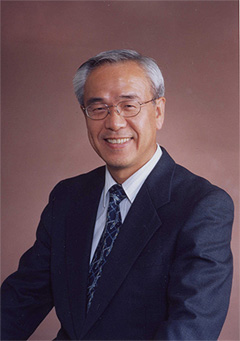 Essential as they are to our daily lives, computers today are electronic devices that process and deliver the desired outputs from the data imported in accord with the processing procedures (algorithms) that experts had built into computers as programs in advance. Consequently, programs need to be written out one by one to meet the purposes and needs of each computer, and they need to be modified or rewritten when the conditions and purposes of their use change or the data types are different. Also, these algorithms are mostly based on deductive reasoning in mathematical or physical models. These conventional computers will no doubt develop further in themselves and melt deeper into our lives. Nevertheless, it does not mean that they employ the most efficient ways of solving problems at hand or give us human-friendly solutions. Therefore, we launched a program where we learn from the ways information is processed in biological brains and neural systems, as an “optimal solution” that has evolved and survived through environmental changes for billions of years, and we strive to build the bases for their engineering applications, conducting our researches and instructions.
In order to create novel methodologies of information processing from the understanding of the essential working mechanisms of the brain and neural systems, and to utilize them as hardware for industries and our daily lives, it is necessary to acquire the broadest knowledge and understanding from science, medicine, engineering to psychology. Taking these necessities into account, we gathered the faculty from the five key fields, “Physiology,” “Psychology,” “Theory and Models,” “Devices,” and “Robotics” when we founded our Department of Brain Science and Engineering in 2000. I surmise that as a single department or program, there is no other organization like ours in Japan or abroad that comprises members with this breadth of specialties.
To foster young researchers who would engage in active researches at the global frontiers in the future, we are offering “Multi-Talent Elite Education (Multi-Disciplinary COE-student program),” taking a full advantage of our unique faculty members. We also organized cross-disciplinary research units, intersecting the above-mentioned five key fields and the three major functions of the brain, “Sensing,” “Learning and Memory,” and “Emergent Behavior,” and we are endeavoring to establish the bases for “brain-inspired” information processing, a novel academic field of “Brain Information Technology.”
Essential as they are to our daily lives, computers today are electronic devices that process and deliver the desired outputs from the data imported in accord with the processing procedures (algorithms) that experts had built into computers as programs in advance. Consequently, programs need to be written out one by one to meet the purposes and needs of each computer, and they need to be modified or rewritten when the conditions and purposes of their use change or the data types are different. Also, these algorithms are mostly based on deductive reasoning in mathematical or physical models. These conventional computers will no doubt develop further in themselves and melt deeper into our lives. Nevertheless, it does not mean that they employ the most efficient ways of solving problems at hand or give us human-friendly solutions. Therefore, we launched a program where we learn from the ways information is processed in biological brains and neural systems, as an “optimal solution” that has evolved and survived through environmental changes for billions of years, and we strive to build the bases for their engineering applications, conducting our researches and instructions.
In order to create novel methodologies of information processing from the understanding of the essential working mechanisms of the brain and neural systems, and to utilize them as hardware for industries and our daily lives, it is necessary to acquire the broadest knowledge and understanding from science, medicine, engineering to psychology. Taking these necessities into account, we gathered the faculty from the five key fields, “Physiology,” “Psychology,” “Theory and Models,” “Devices,” and “Robotics” when we founded our Department of Brain Science and Engineering in 2000. I surmise that as a single department or program, there is no other organization like ours in Japan or abroad that comprises members with this breadth of specialties.
To foster young researchers who would engage in active researches at the global frontiers in the future, we are offering “Multi-Talent Elite Education (Multi-Disciplinary COE-student program),” taking a full advantage of our unique faculty members. We also organized cross-disciplinary research units, intersecting the above-mentioned five key fields and the three major functions of the brain, “Sensing,” “Learning and Memory,” and “Emergent Behavior,” and we are endeavoring to establish the bases for “brain-inspired” information processing, a novel academic field of “Brain Information Technology.”
|